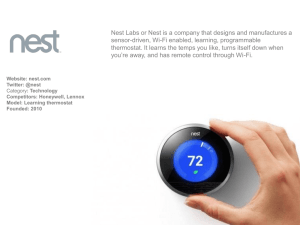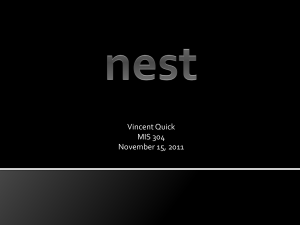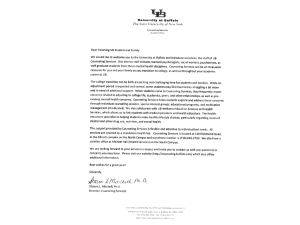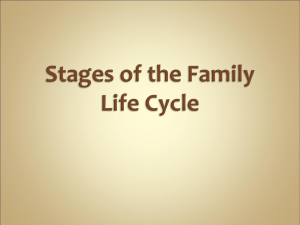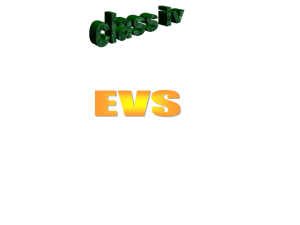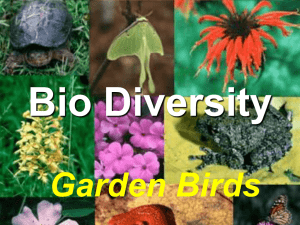Main Proposal - Minnesota Senate
advertisement
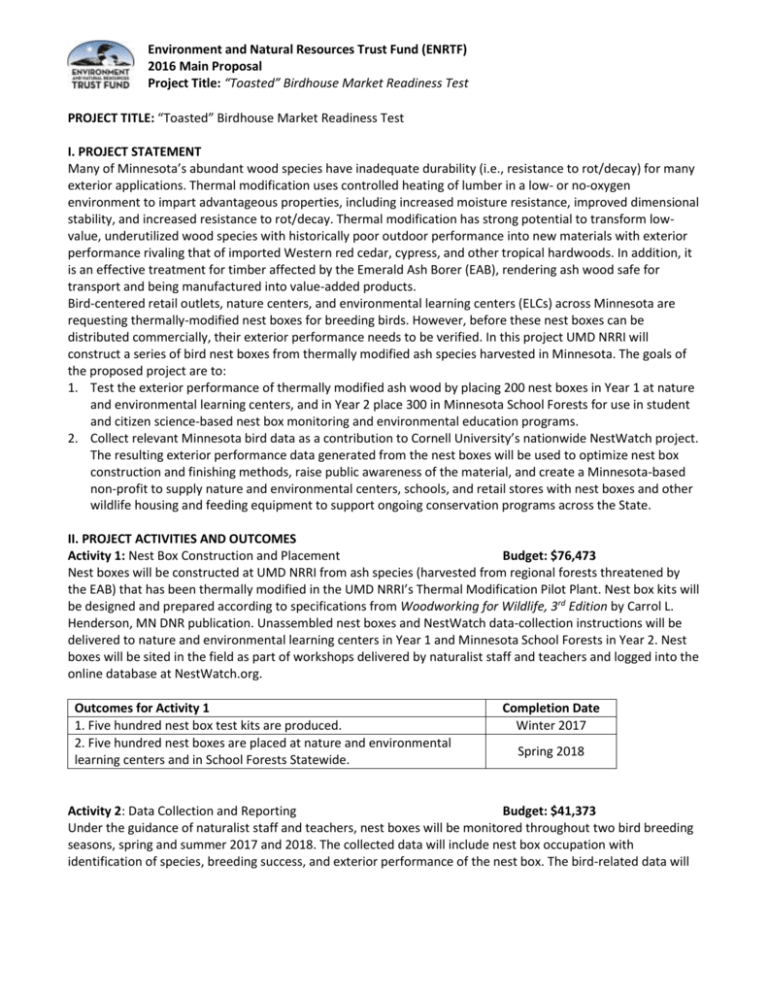
Environment and Natural Resources Trust Fund (ENRTF) 2016 Main Proposal Project Title: “Toasted” Birdhouse Market Readiness Test PROJECT TITLE: “Toasted” Birdhouse Market Readiness Test I. PROJECT STATEMENT Many of Minnesota’s abundant wood species have inadequate durability (i.e., resistance to rot/decay) for many exterior applications. Thermal modification uses controlled heating of lumber in a low- or no-oxygen environment to impart advantageous properties, including increased moisture resistance, improved dimensional stability, and increased resistance to rot/decay. Thermal modification has strong potential to transform lowvalue, underutilized wood species with historically poor outdoor performance into new materials with exterior performance rivaling that of imported Western red cedar, cypress, and other tropical hardwoods. In addition, it is an effective treatment for timber affected by the Emerald Ash Borer (EAB), rendering ash wood safe for transport and being manufactured into value-added products. Bird-centered retail outlets, nature centers, and environmental learning centers (ELCs) across Minnesota are requesting thermally-modified nest boxes for breeding birds. However, before these nest boxes can be distributed commercially, their exterior performance needs to be verified. In this project UMD NRRI will construct a series of bird nest boxes from thermally modified ash species harvested in Minnesota. The goals of the proposed project are to: 1. Test the exterior performance of thermally modified ash wood by placing 200 nest boxes in Year 1 at nature and environmental learning centers, and in Year 2 place 300 in Minnesota School Forests for use in student and citizen science-based nest box monitoring and environmental education programs. 2. Collect relevant Minnesota bird data as a contribution to Cornell University’s nationwide NestWatch project. The resulting exterior performance data generated from the nest boxes will be used to optimize nest box construction and finishing methods, raise public awareness of the material, and create a Minnesota-based non-profit to supply nature and environmental centers, schools, and retail stores with nest boxes and other wildlife housing and feeding equipment to support ongoing conservation programs across the State. II. PROJECT ACTIVITIES AND OUTCOMES Activity 1: Nest Box Construction and Placement Budget: $76,473 Nest boxes will be constructed at UMD NRRI from ash species (harvested from regional forests threatened by the EAB) that has been thermally modified in the UMD NRRI’s Thermal Modification Pilot Plant. Nest box kits will be designed and prepared according to specifications from Woodworking for Wildlife, 3rd Edition by Carrol L. Henderson, MN DNR publication. Unassembled nest boxes and NestWatch data-collection instructions will be delivered to nature and environmental learning centers in Year 1 and Minnesota School Forests in Year 2. Nest boxes will be sited in the field as part of workshops delivered by naturalist staff and teachers and logged into the online database at NestWatch.org. Outcomes for Activity 1 1. Five hundred nest box test kits are produced. 2. Five hundred nest boxes are placed at nature and environmental learning centers and in School Forests Statewide. Completion Date Winter 2017 Spring 2018 Activity 2: Data Collection and Reporting Budget: $41,373 Under the guidance of naturalist staff and teachers, nest boxes will be monitored throughout two bird breeding seasons, spring and summer 2017 and 2018. The collected data will include nest box occupation with identification of species, breeding success, and exterior performance of the nest box. The bird-related data will Environment and Natural Resources Trust Fund (ENRTF) 2016 Main Proposal Project Title: “Toasted” Birdhouse Market Readiness Test be entered into the NestWatch.org database, and the nest boxes will be collected and returned to NRRI for the analysis of wood performance data. Outcomes for Activity 2 1. Generate performance data from 500 nest boxes. 2. Enter bird data (representing Minnesota bird species over two breeding seasons) into the NestWatch database. 3. Prepare report detailing the exterior performance of the thermallymodified ash species, and make recommendations for market readiness. Completion Date Summer 2018 Summer 2018 June 2018 III. PROJECT STRATEGY A. Project Team/Partners Team: Sue French, Wood Scientist, UMD NRRI. Role: develop thermally modified wood materials, construct nest box kits, analyze wood performance data. Ed Zlonis, Ornithologist, UMD NRRI. Role: to identify targeted bird species by location, analyze bird data. Matt Aro, Research Fellow, UMD NRRI. Role: perform thermal modification, analyze wood data. Ryan Hueffmeier, Scientist/Environmental Educator, UMD NRRI. Role: deliver workshops at Hartley Nature Center, Sax-Zim, and others, provide environmental education support, coordinate data collection with naturalists and teachers. Partners: Robyn Bailey, Project Leader, NestWatch/The Cornell Lab of Ornithology. Role: provide support in integration of collected bird data into existing NestWatch database. Kurt Mead, Naturalist, Tettegouche State Park. Role: deliver workshops at Tettegouche. Peter Harris, Science Projects Coordinator, Wolf Ridge ELC. Role: oversee delivery of environmental education programs at Wolf Ridge. Alexis Grinde, Ornithologist/Biology Instructor, Pine Technical and Community College. Role: deliver workshops at Pine Technical and Community College. B. Project Impact and Long-Term Strategy The long-term strategy of the project is to generate sufficient exterior performance data for the optimization of nest boxes manufactured from thermally modified ash species for successful commercialization. The resulting Minnesota-based small (potentially started through the Cultural Entrepreneurship Program at UMD) will manufacture wildlife housing and feeding equipment, targeting birds and other threatened native species, such as bats and bees, with profits used to support the ongoing and increased delivery of conservation and citizenscience workshops across the State. C. Timeline Requirements Workshops and environmental education programs are delivered at the beginning of two field seasons, Spring 2017 and Spring 2018. Nest box monitoring and data collection occur over two seasons, Spring and Summer 2017 and 2018. Final report submitted following the end of the second breeding season, by June 2018.

